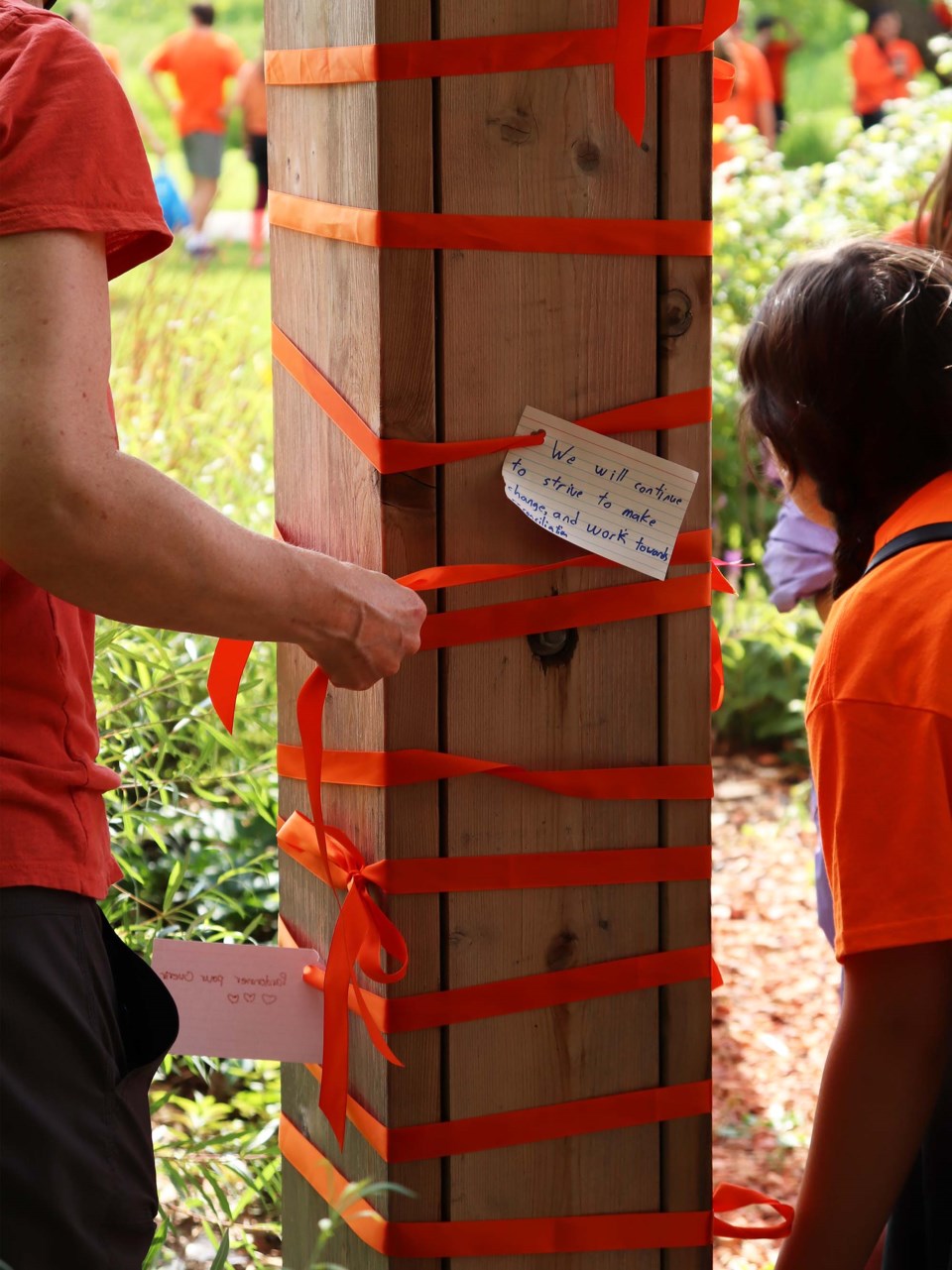St. Albert’s Run for Reconciliation is getting ready to help Poundmaker’s Lodge rise from the ashes.
About 400 people will rally at Lions Park this July 1 for the fifth annual Run/Walk for Reconciliation. Established in 2021, this annual event aims to raise awareness of the enduring trauma of Canada’s residential school system and encourage people to help build right relations with Canada’s First Peoples.
Event founder and St. Albert resident Amanda Patrick said this year’s run/walk aims to raise at least $1,996 to help Poundmaker’s Lodge recover from a large fire that happened at its St. Albert treatment centre on June 14. (The amount references 1996, which was the year when Canada’s last residential school closed.)
Guests at the event will head out from Lions Park on a three-kilometre walk or five-kilometre run along the Sturgeon River, Patrick said. Many will be clad in orange shirts as they would be on Orange Shirt Day (another national event that aims to promote reconciliation). The run/walk will end at the Kâkesimokamik Healing Garden across from St. Albert Place, where participants will tie orange ribbons on the site’s pergola.
Patrick said some people will write their family names on their ribbons, while others will write about how they plan to act on the Truth and Reconciliation Commission’s 94 Calls to Action.
“Just showing up is an act of reconciliation,” she noted.
The event will also feature speeches from Indigenous elders, performances by drummers and dancers from Alexander First Nation, and bannock.
Know the past
Edmontonian Emilea Karhioo-Saadeh said she, her husband, and their son had taken part in the run/walk three times before and plan to be back again this July. The event is important to her family, as her grandfather, Ernie Callihoo, was a survivor of the St. Albert (Youville) Residential School, which once stood near the Father Lacombe Chapel.
“I think a lot of people don’t realize that residential schools were in St. Albert,” she said, or the effects they had on generations of First Nations, Métis, and Inuit families.
In her case, Karhioo-Saadeh said her grandfather’s experience in residential schools (which were designed to exterminate Indigenous culture) meant her mother was for many years reluctant to talk about First Nations culture. It was only after Callihoo started to open up about his past that she and her family started gaining more understanding of their roots.
“For my generation and now my son, we’re really fortunate we get to be proud of our cultural heritage,” she said.
Patrick said St. Albert residents seem more aware now of how Canada lies on Indigenous lands than they were five years ago, with land acknowledgements becoming more common at public events. Still, with 94 Calls to Action, there is still plenty more for Canadians to do to effect reconciliation.
“It’s an act of reconciliation to acknowledge the past, but also we cannot move forward until we acknowledge the past,” she said.
“Let’s honour and remember the history of our country, and then we can go forward and celebrate our great country.”
Karhioo-Saadeh encouraged people to learn about the history and vibrancy of Indigenous peoples through events such as these.
“We’re still here, and we’re on a healing journey.”
The run/walk begins at 9 a.m. July 1. Visit runremrec.square.site to register.


-jf-c.jpg;w=120;h=80;mode=crop)

